Things you do every day that your dog hates
These seemingly harmless habits are very annoying for your pet
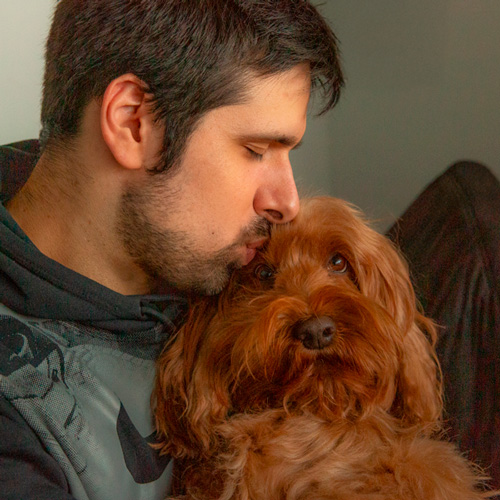
THE COEXISTENCE BETWEEN DOGS AND PEOPLE
Approximate reading time: 9 minutes
Your dog is your best friend and an indispensable member of your family. However, even though you have a deep bond of affection and loyalty, the truth is that you speak different languages. Dogs and people are very different in our habits, preferences and way of expressing ourselves, so it is natural that, just as our pets do things that we don't understand and that annoy us, some of our habits irritate them deeply. Have you ever wondered what things you do on a daily basis that your dog finds unpleasant?
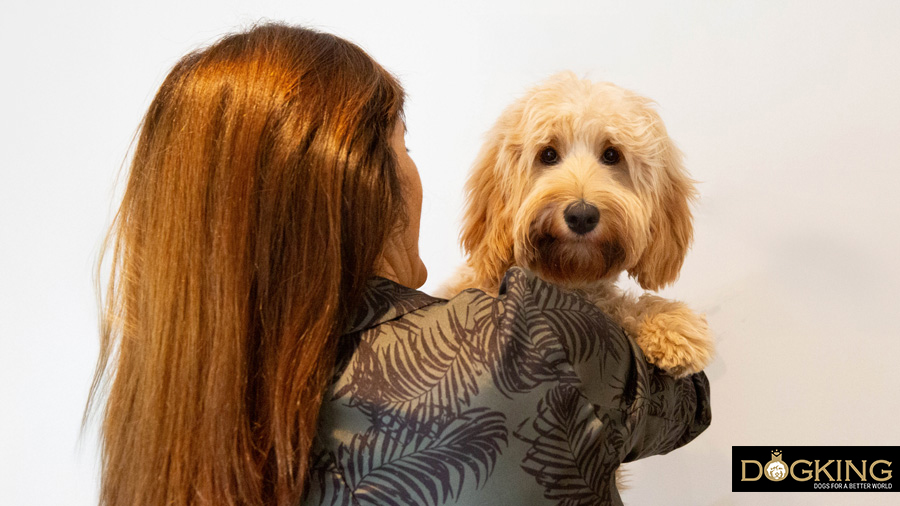
Table of contents
1- 10 attitudes your dog can't stand (and alternatives to make him happier)
10 attitudes your dog can't stand (and alternatives to make them happier)
When it comes to enjoying a good coexistence with your dog, it is important to know their preferences and needs. It is not a question of doing everything they want, but of avoiding those habits or situations that are not necessary and cause them great discomfort. For example, if you notice that your pet is uncomfortable with you whistling, why continue to do it in their presence? Let's analyse some of the habits we have towards our furry friends that they don't like at all.
-
Cleaning the house
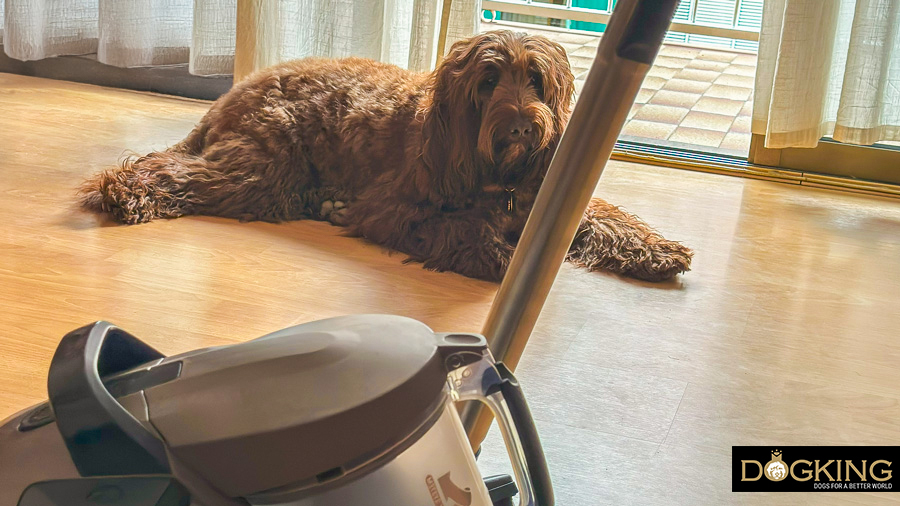
Maintaining a clean and disinfected environment in your home is very important for your dog's health. However, it does not do your pet any good if you use strong cleaning products such as bleach, ammonia or air fresheners. In general, dogs hate strong chemical smells, such as perfumes, but also natural smells, such as vinegar or lemon, which are often used as a natural cleaning alternative. Because they have such a highly developed sense of smell, they are very sensitive to these aromas, which can even irritate their airways.
Alternatively: if you don't want to stop cleaning your house, and since natural products don't do much good either, the best advice we can give you is to try to keep your dog away from the area you are cleaning or take advantage of a time when they are out for a walk with another member of the family. It also helps to open the windows to ventilate the rooms more quickly, but don't lose sight of your dog's safety, especially if they are small.
-
Hugs and kisses
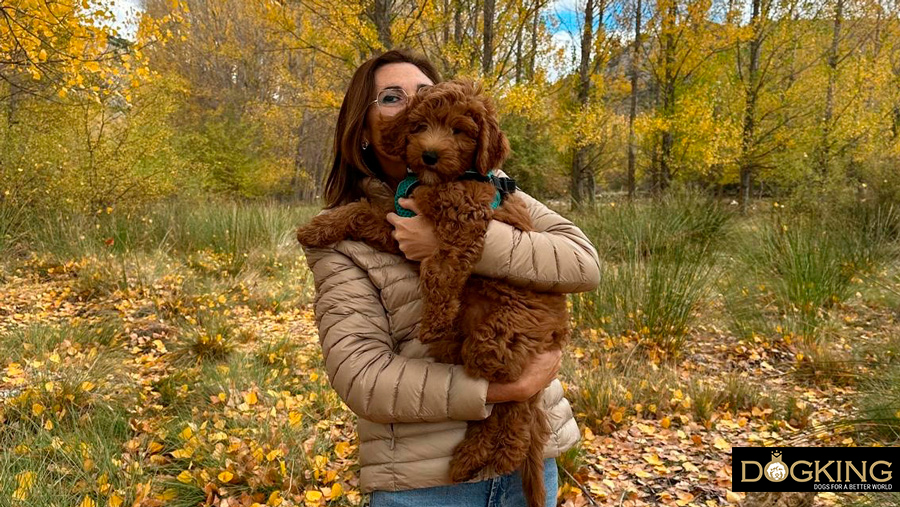
Hugs and kisses are our natural way of showing affection, and while many dogs, such as the Australian Cobberdog, enjoy these cuddles and even ask for them, some others may not understand our affectionate outbursts and feel overwhelmed. If you detect these signs in your furry pooch, choose a different way to show your love, but if they love cuddles, enjoy cuddling as much as you like!
Alternatively: if your dog doesn't tolerate hugs or kisses well, try stroking their back, playing with them for a while, brushing them gently or giving them a massage - your love will come to them in these ways too!
-
Staring at them
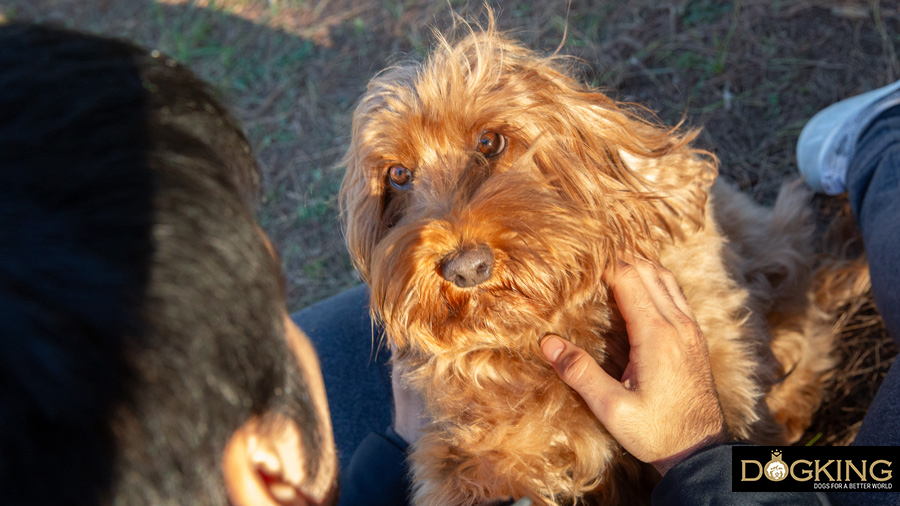
If your dog trusts you and you are an authority and security figure for them looking them in the eye is probably no problem. In fact, it can be a nice way to reinforce that special bond you share. Some dogs have such an expressive gaze that it almost seems human, such as the Australian Cobberdog, and enjoy watching their owners closely and receiving their loving gaze in return. However, in the case of unfamiliar dogs, looking them directly in the eye is not such a good idea, as they may feel intimidated or challenged.
Alternative: An alternative way to look at a dog is to look at it from the side, tilting your head slightly.
-
Stroking their head
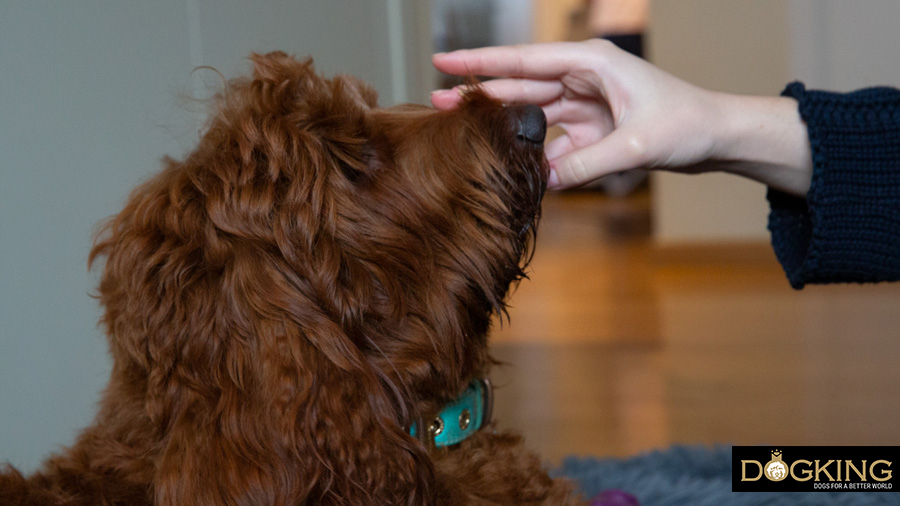
This may come as a surprise, but no, in most cases dogs do not like to be touched on their face, nor do they like it on their head. This is a sensitive area for them and direct contact is not usually pleasant for them. In fact, if you don't know the dog, don't try to touch them there, as you don't know how they will react.
Alternatively: instead of touching or stroking your dog's head, choose their back, which is a very safe area to cuddle them and will also give them a lot of pleasure and comfort.
-
Nail clipping
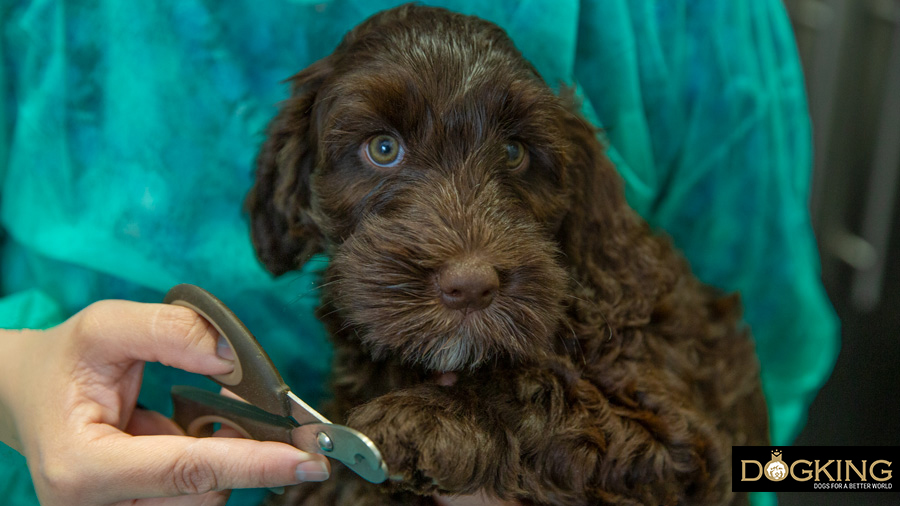
Although some dogs are saints and behave like angels during a nail trimming session, the truth is that most of them hate having their paws handled. This is why they loathe having their nails trimmed, a habit that can be a real challenge for many dog owners.
Alternative: Trimming your dog's nails is important to prevent them from splitting badly, overgrowing, ingrown nails, ingrown nails and infections. If you have problems trimming your dog's nails, it is best to leave this task in the hands of professionals. A visit to the groomer will make things easier. Ideally, you should get your dog used to this basic grooming routine from a young age, both at home and at the groomer's shop.
-
Pulling on the leash

Although a dog should learn to walk calmly at your side without stopping at every moment, we should not go to the other extreme either, i.e. not let them stop to sniff the scent of other dogs, to greet people or to observe something that has aroused their curiosity. Your dog is a social animal that loves stimuli and the street is the best place to meet them all. The walk should be a relaxing time for them where they can enjoy the experience of sniffing, discovering and analysing everything around them. So yes, you've guessed it: your dog hates it when you rush them by constantly pulling on the lead.
Alternative: from the time your dog is a puppy (once they have had all their vaccinations) you should train them to walk along with you calmly, without anxiety and without stopping all the time. However, you should also let your dog be a dog and allow them to wander around from time to time. We recommend that your furry friend enjoys a long, leisurely and enriching walk at least once a day.
-
Teasing them when they is quiet
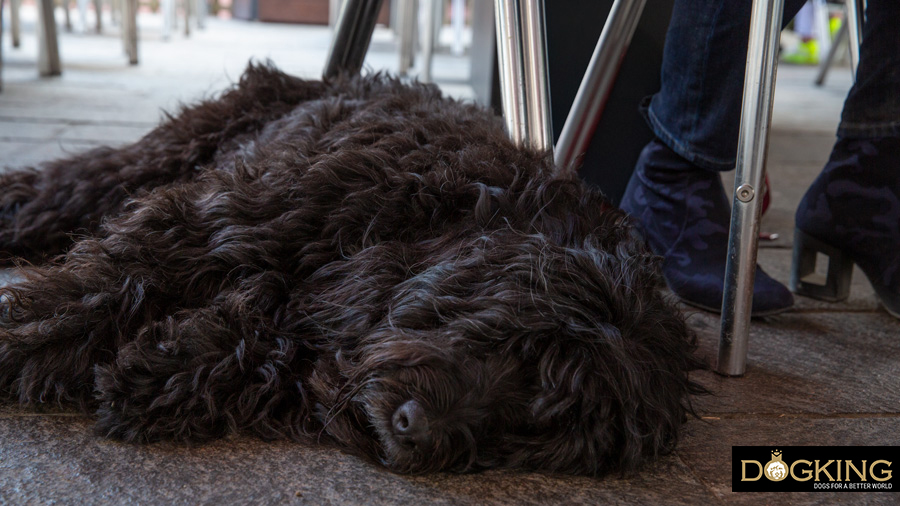
It is never a good idea to disturb your dog when they are relaxed, although there are three specific situations when your pet hates to be disturbed: when they are eating, when they are sleeping or resting, or when they are relieving themself. All three of these moments have in common that they are very intimate and vulnerable for your furry friend, so they may feel threatened if you decide to interrupt them.
Alternative: If your dog is enjoying their food, doing their business or napping, leave the games and distractions for another time. Just as you don't like to be disturbed when you're on your own, neither does your dog. Choose other times of the day to pay attention to them such as during a walk, before meals or when they've just woken up from a snooze.
-
Blowing in their face
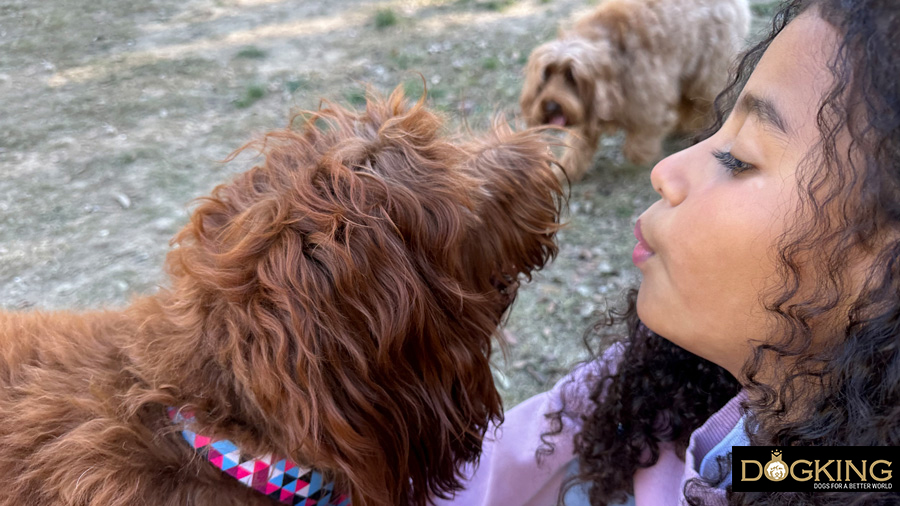
As we have already seen, the face is a very sensitive area for dogs. In general, they don't like this part of their body to be handled, let alone blown on. For these animals, this concentrated and intense flow of air is confusing and irritating.
Alternative: If you want to attract your dog's attention or surprise them, it is preferable to show them their favourite toy or make a sign or gesture that you use for play.
-
Cheat them with food
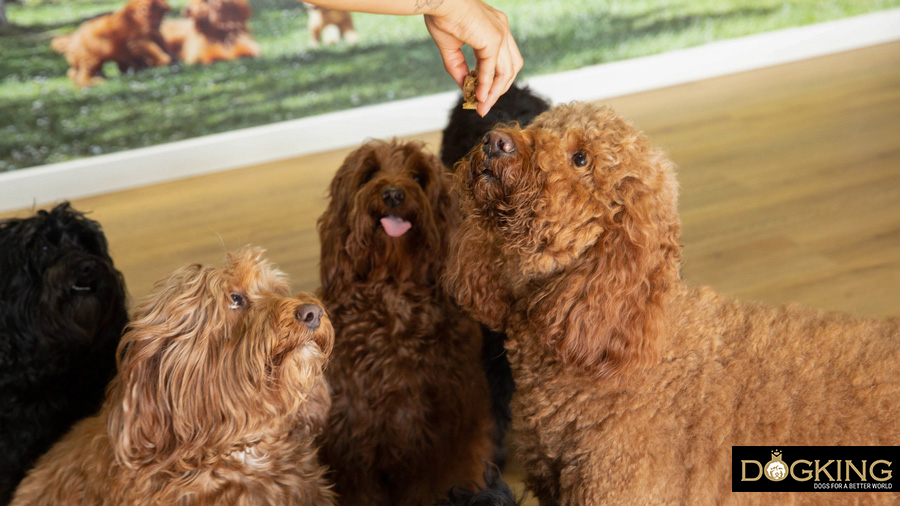
How would you like it if someone put a delicious cake in front of your face and then took it away? Well, your dog doesn't like it when you offer them a treat or a piece of food and then take it away from them. This attitude is neither funny nor recommended as it can cause anxiety and frustration for your dog. It could also trigger a sharp bite to secure a treat that is never quite theirs.
Alternative: Never trick your dog or play with their expectations. If you are going to give them a treat or snack, show it to them, let them sniff it for a few seconds and offer it to them without cheating.
-
Leaving the house
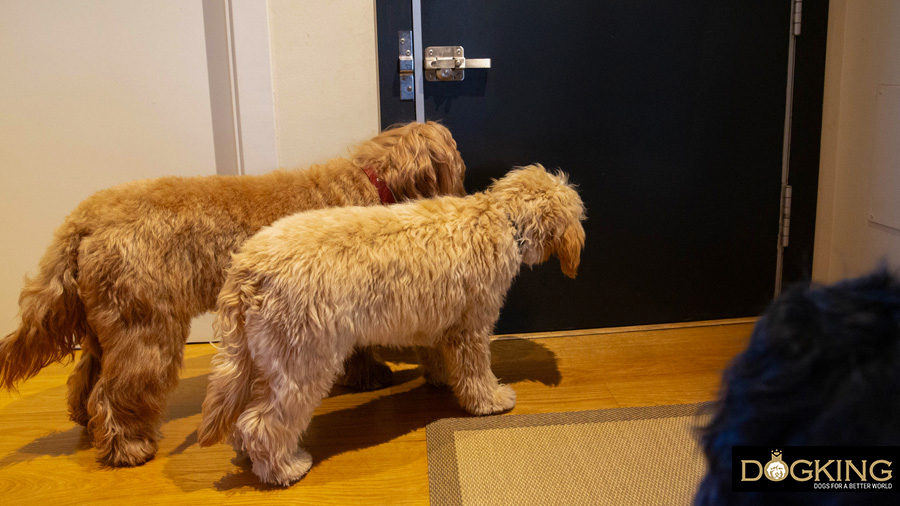
I'm sure you already know this. Despite those little habits that irritate them so much about you, your dog adores you above all else, which means they hate it when you leave. If it were up to them they'd be interacting with you all the time and enjoying your attention. But don't worry, just because your dog misses you when you're away doesn't necessarily mean they are having a bad time. If you get your pet used to managing loneliness and being independent through a gradual habituation process from puppyhood, they will be able to stay at home peacefully while you are away.
However, poor socialisation can lead to separation anxiety in your dog, so if you find out that they bark and cry non-stop while you are away, or you notice that they display destructive attitudes or even urinate inside the house, consult a specialist, as in these cases there is a disorder that does cause your puppy a lot of suffering and needs to be solved.
Alternatively: get your dog used to leaving the house at shorter and shorter intervals from an early age, reinforcing their calm and positive attitudes (do not say goodbye when you leave and do not greet them when you return until they have calmed down). But never leave your pet alone for more than 8 hours, because no matter how socialised they are, your furry companion needs your company and attention to be fully happy.